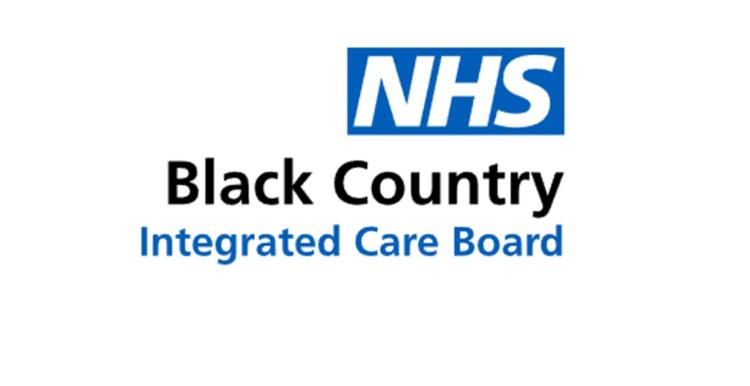Signs and symptoms of asthma
Ahead of World Asthma Day (Tuesday 7 May), people in the Black Country are being reminded of the signs and symptoms of asthma.
World Asthma Day is organised by the Global Initiative for Asthma (GINA), which aims to improve asthma awareness and care. This year’s theme is ‘Asthma Education Empowers’ and focuses on the importance of empowering people with asthma with the appropriate education to manage their condition and to recognise when to seek medical help.
Asthma is a common lung condition that causes breathing difficulties. It affects people of all ages and often starts in childhood, although it can also develop for the first time in adults.
The main symptoms are a whistling or wheezing sound when breathing, a feeling of breathlessness, a tight chest and coughing. The symptoms tend to vary and can sometimes get worse - this is commonly known as an asthma attack.
The NHS has created a video of a local GP sharing important tips of how to recognise an asthma attack, particularly in children, which can be viewed on YouTube.
Dr Atul Gulati, Clinical Director Respiratory Medicine at The Royal Wolverhampton NHS Trust, said: “World Asthma Day provides the perfect opportunity to raise awareness of asthma including the signs and symptoms to look out for and the importance of seeking help.
“Everyone’s asthma is different, and people may have several triggers. Some of the most common triggers include having a cold or flu, exposure to air pollution, tobacco smoke, house dust mites, animal fur, or grass and tree pollen.
“Whilst the severity of symptoms varies from person to person, asthma is a serious condition so it’s really important that you don’t ignore symptoms and seek medical advice straight away if you’re concerned.”
To help raise awareness of asthma management in children, the NHS Black Country Integrated Care Board (ICB) has also launched its Asthma Friendly Schools initiative which encourages all schools in the Black Country to welcome children with asthma and support them to proactively manage their asthma, both at home and school, so they don’t miss out.
Lisa Cummings, Queens Nurse and Asthma Practitioner in the Children and Young People’s Asthma Team for the NHS Black Country ICB, said: “Asthma is a common but very serious, and sometimes life-threatening, medical condition which affects one in 11 children in the UK.
“We know that asthma that is poorly controlled can not only impact physical health but also psychological health and educational attainment, and so our aim is to ensure that every child with asthma can go to school and fully participate in all elements of school life.
“Our Asthma Friendly School programme recognises the important role that schools play in the health and wellbeing of children, which is why we are encouraging all local schools in the Black Country to take part. The initiative aims to improve the care of pupils with asthma by raising awareness through information, training and support for school staff, as well as pupils, parents and carers.”
World Asthma Day is organised by the Global Initiative for Asthma (GINA), which aims to improve asthma awareness and care. This year’s theme is ‘Asthma Education Empowers’ and focuses on the importance of empowering people with asthma with the appropriate education to manage their condition and to recognise when to seek medical help.
Asthma is a common lung condition that causes breathing difficulties. It affects people of all ages and often starts in childhood, although it can also develop for the first time in adults.
The main symptoms are a whistling or wheezing sound when breathing, a feeling of breathlessness, a tight chest and coughing. The symptoms tend to vary and can sometimes get worse - this is commonly known as an asthma attack.
The NHS has created a video of a local GP sharing important tips of how to recognise an asthma attack, particularly in children, which can be viewed on YouTube.
Dr Atul Gulati, Clinical Director Respiratory Medicine at The Royal Wolverhampton NHS Trust, said: “World Asthma Day provides the perfect opportunity to raise awareness of asthma including the signs and symptoms to look out for and the importance of seeking help.
“Everyone’s asthma is different, and people may have several triggers. Some of the most common triggers include having a cold or flu, exposure to air pollution, tobacco smoke, house dust mites, animal fur, or grass and tree pollen.
“Whilst the severity of symptoms varies from person to person, asthma is a serious condition so it’s really important that you don’t ignore symptoms and seek medical advice straight away if you’re concerned.”
To help raise awareness of asthma management in children, the NHS Black Country Integrated Care Board (ICB) has also launched its Asthma Friendly Schools initiative which encourages all schools in the Black Country to welcome children with asthma and support them to proactively manage their asthma, both at home and school, so they don’t miss out.
Lisa Cummings, Queens Nurse and Asthma Practitioner in the Children and Young People’s Asthma Team for the NHS Black Country ICB, said: “Asthma is a common but very serious, and sometimes life-threatening, medical condition which affects one in 11 children in the UK.
“We know that asthma that is poorly controlled can not only impact physical health but also psychological health and educational attainment, and so our aim is to ensure that every child with asthma can go to school and fully participate in all elements of school life.
“Our Asthma Friendly School programme recognises the important role that schools play in the health and wellbeing of children, which is why we are encouraging all local schools in the Black Country to take part. The initiative aims to improve the care of pupils with asthma by raising awareness through information, training and support for school staff, as well as pupils, parents and carers.”


